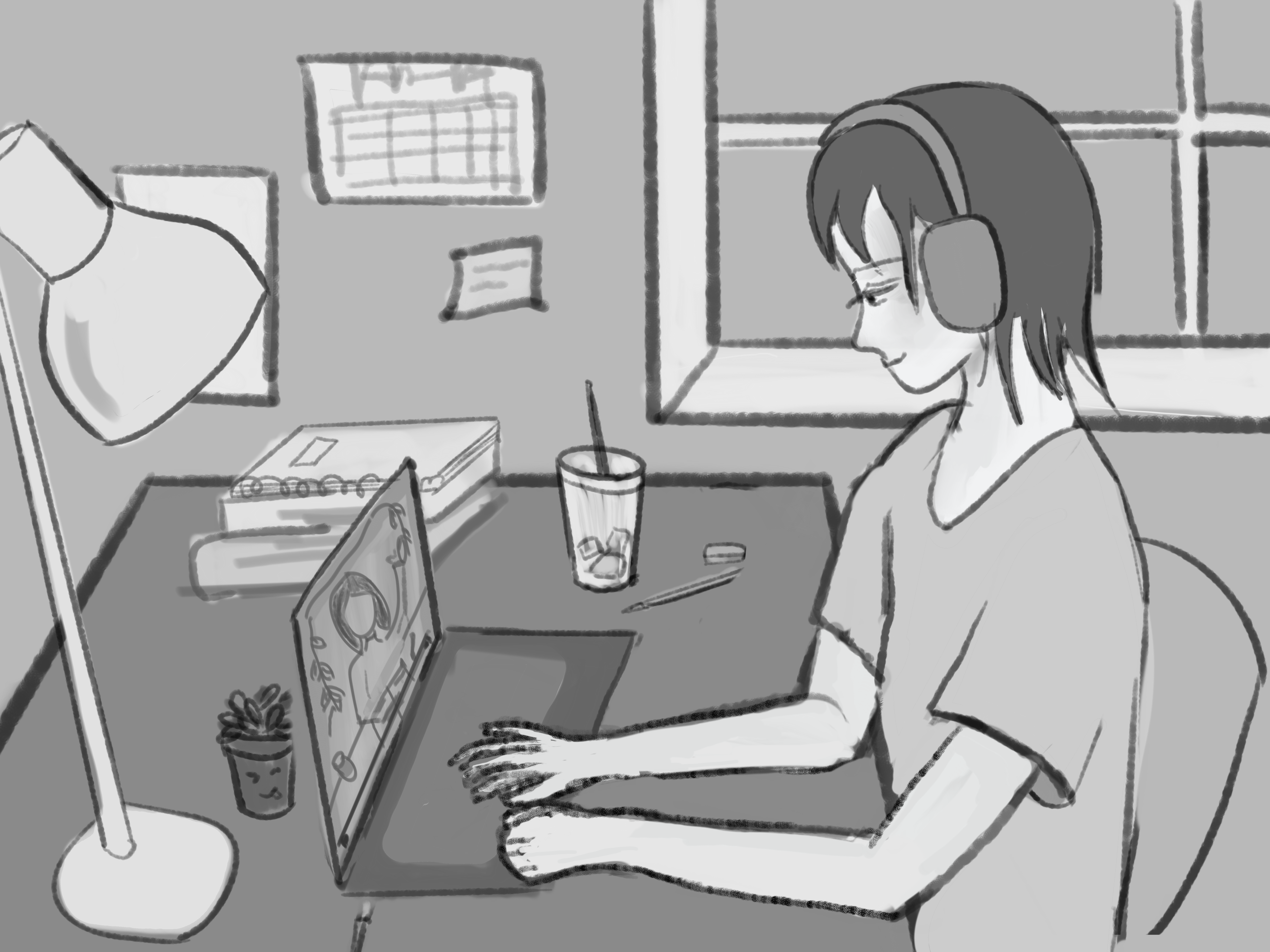How Romanticizing Studying and School can be Harmful
September, 2023
Social media has only intensified our obsession with romanticizing school and studying. The hashtag #romanticizeyourlife has garnered over 131 thousand posts on Instagram, with #studyaesthetic marginally beating it with 198 thousand posts. These posts are composed of anything from flawlessly organized desk set-ups to vlogs of cafe study dates. As fun and harmless as all that may sound, oftentimes these idealized studying mindsets set unrealistic expectations for school and contribute to hustle culture, a societal pressure to remain productive and on-task at all times.
It is understandable that students may feel as though without some method of motivating themselves, they cannot focus on their schoolwork. This is why many people turn to romanticizing their tasks to persevere through the workload. Yes, it can put a fun twist on otherwise mundane activities, and for some students that may be a good enough reason to adopt this as a motivational technique. However, what these students do not realize is that the negative effects of this tactic may outweigh the positive ones. At first, building a pleasurable routine around studying — which may include perfecting your handwritten notes, lighting a candle, or color-coordinating your supplies — can be overwhelmingly tempting. But after a while, one begins to notice the overall toxicity that these behaviors conceive. The high standards for the aesthetic of it all can be unrealistic, and the push to always be constantly and diligently working creates unnecessary pressure, which breeds a destructive collective mindset surrounding the trend.
Romanticizing studying creates an image of the perfect way to study for tests, review notes, and complete homework. However, it is sometimes difficult for students to achieve such “perfect” study sessions. Not all people have the time, energy, and financial resources to buy all of these supplies that are often tied to romanticizing school and studying. Through general media, fancy stationery, and other aesthetic supplies are promoted almost everywhere; this sets materialistic standards that are quite exclusive and unrealistic. Students that participate in this trend most likely get the idea from films and videos that present often unattainable studying routines and environments. When we realize that reality is different from the expectations formed when watching these characters we idolize, it often results in disappointment, shame, and an unnecessary pressure to work hard toward unreasonable standards in order to imitate these online or fictional personalities.
Not only does romanticizing studying set unattainable standards for students, but it also acts as a form of procrastination. It has granted students a way to slack off from actually studying, yet still feel as though they are accomplishing something. By creating an aesthetic to-do list and adding calligraphy titles to our notes, there is an illusion of accomplishing productive tasks, but are any of these add-ons as important as actually studying? The strive to make our studying environment perfect and ideal may end up leading to a decrease in productivity because of all the time spent on unnecessary tasks and distractions.
Another distraction that may come up when one romanticizes their studying is external noises and sounds. Some people recommend listening to a studying playlist while completing schoolwork, as it creates a certain ambiance that is helpful for some individuals. However, that may be extremely distracting for other students, and having outside noises while trying to focus on work can be very off-putting and unhelpful. The same is true for people who find it difficult to study in public spaces. There is a branch of this trend that fixates on studying in coffee shops or bookstores, but all the external sounds that go hand-in-hand with such places could be very overwhelming and distracting for some students, and may lead to poor quality work being produced.
As students with already stressful and rigorous academic lives, we shouldn’t push ourselves to not only excel in school, but to also do so in an aesthetic manner. Romanticizing study routines and sessions may work for some, but it shouldn’t become the norm, as it’s financially and practically not fit for many students. While study methods are ultimately up to personal preference, elaborate routines do not work for everyone, and treating them as the standard does more harm than good.